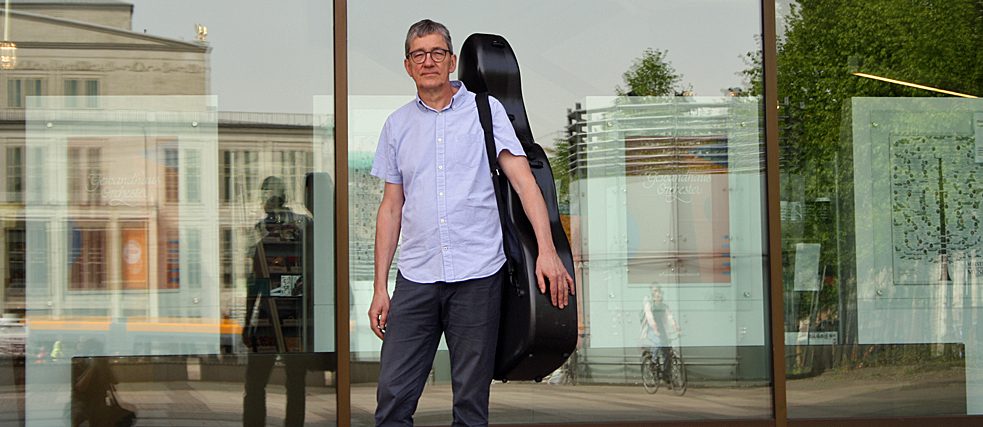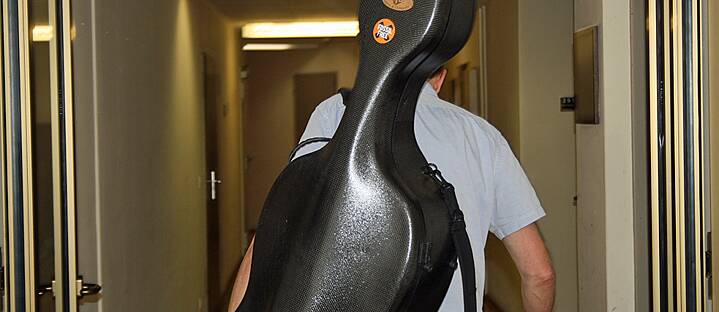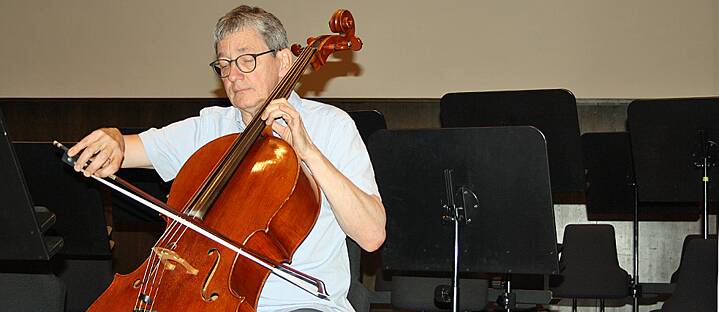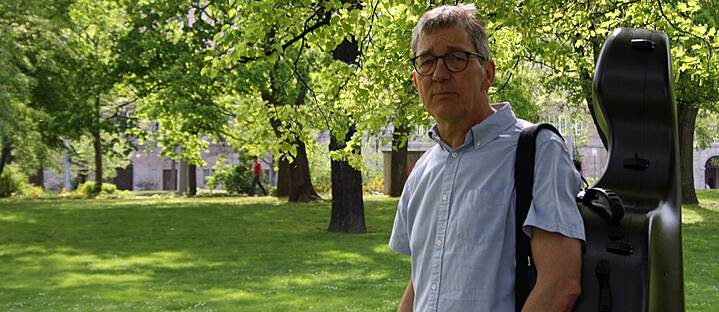Summer in Germany
“I play ‚Lohengrin‘ in shorts and flip-flops.”

When his colleagues in the Leipzig Gewandhaus Orchestra go on summer break, the cellist Matthias Schreiber will be sitting in the orchestra pit of the Bayreuth Festival. Instead of a holiday, a Wagnerian treat.
Von Ula Brunner
This summer Matthias Schreiber can safely leave his white tie and tails in the closet. Not only because the Gewandhaus Orchestra in Leipzig will be taking a six-week break: for almost forty years, the cellist has been a permanent member of what is probably the world’s largest professional orchestra. But also because every two years he, a “dyed-in-the-wool Wagnerian”, goes to Bayreuth. While his Leipzig colleagues are on holiday, Schreiber sweats along with around 200 other musicians from all over the world in the Bayreuth orchestra pit. This is located below the stage, and in summer the temperatures there are almost unbearably hot. That’s why a casual clothing etiquette prevails among the musicians. “I play Lohengrin in shorts and flip-flops; I don’t change my clothes. It’s my way of relaxing, so to speak”, says Schreiber.
Actually, he confesses with a small smile, he needs his vacation, even a certain amount of time without music, to clear his head. His everyday life as a musician in Leipzig is determined by rehearsals, performances and tours. Schreiber has been a member of the orchestra since it moved to the Neue Gewandhaus on Augustusplatz in 1981. When the tall man rushes jauntily down the aisles of the concert hall, his instrument strapped loosely on his back, you feel how naturally he is part of the place.

Quick steps through the Gewandhaus | Photo (detail): © Ula Brunner

In the empty concert hall | Photo (detail): © Ula Brunner
And then Bayreuth! From the beginning of the rehearsal to the last performance, the festival takes ten weeks. That sounds exhausting. Schreiber waves the thought away: “Despite everything, it’s a relaxed atmosphere”. His family often accompanies him; he doesn’t play every day, so there is time for excursions and hiking. He likes to use the one-hour break between acts for a walk in the forest or for a visit to the neighboring Kneipp bath.

Matthias Schreiber has been playing the cello for almost his entire life | Photo (detail): © Ula Brunner